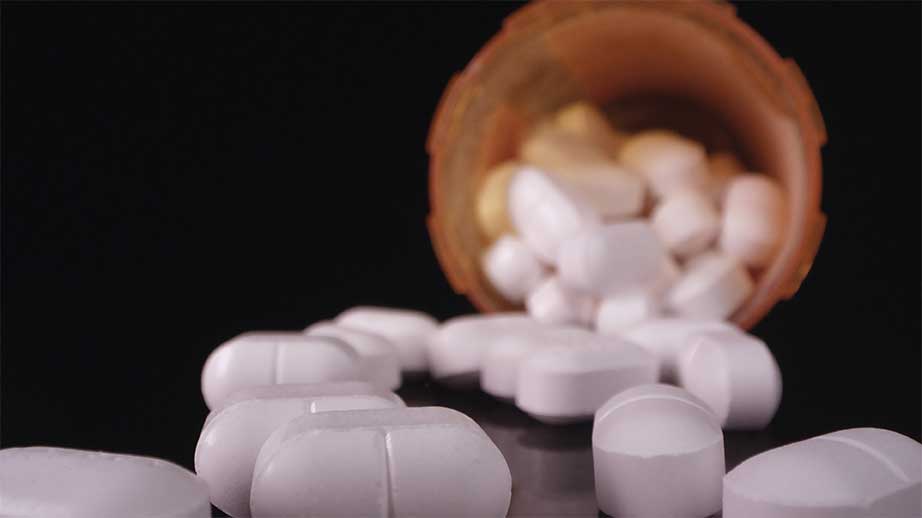Opioids Vs. Opiates | What’s The Difference?

Medically Reviewed By: Manish Mishra, MBBS
Although some people use the terms “opioids” and “opiates” interchangeably, these words have different meanings. The term “opioid” is a general term for all opioids, while the term “opiate” refers to a specific type of opioid that occurs naturally.

Opioids are powerful substances that reduce pain. They can also cause relaxation and euphoria (intense joy), especially at high doses. That’s why they’re sometimes misused.
Many people use the terms “opioid” and “opiate” interchangeably. While these words sound similar, they have different meanings.
The Difference Between Opioids & Opiates
The term “opioid” is a general term for all opioids. These substances provide pain relief by activating opioid receptors throughout the body. Common side effects include drowsiness, constipation, and nausea.
The term “opiate” refers to a specific type of opioid. Opiates, also known as “natural opioids,” are opioids that occur naturally. They are extracted from the seed pod of the opium poppy plant.
Examples Of Opiates
Examples of opiates include:
Opium
Opium is a substance extracted directly from the opium poppy. Humans have been cultivating it since at least 3,400 B.C. It comes in multiple forms, including a powder, liquid, and solid.
Morphine
Morphine is an active ingredient in opium. It was first isolated from opium in 1803. Soon after, it became a popular painkiller. It’s about ten times stronger than opium.
Codeine
Like morphine, codeine is an active ingredient in opium that was first isolated in the 1800s. Today, it’s usually made from morphine, though it can also still be made from opium. It’s less potent than morphine.
Other Types Of Opioids
Besides opiates, there are two other types of opioids: semi-synthetic opioids and synthetic opioids.
Semi-Synthetic Opioids
Semi-synthetic opioids are substances that are synthesized from natural opioids using synthetic (human-made) chemicals. One of the most popular examples is the illegal drug heroin, which is synthesized from morphine. Other semi-synthetic opioids include:
- oxycodone (OxyContin)
- oxymorphone (Opana)
- hydrocodone (Vicodin)
- hydromorphone (Exalgo)
Synthetic Opioids
Synthetic opioids are opioids that are synthesized in a laboratory. Unlike semi-synthetic opioids, they are not synthesized from any natural opioids. Instead, they are fully human-made. Examples include:
- tramadol (Ultram)
- buprenorphine
- methadone
Buprenorphine and methadone are sometimes used to ease cravings and withdrawal symptoms in people who are addicted to other opioids. This type of treatment is only safe when the patient is closely monitored by a healthcare provider.
Another popular synthetic opioid is fentanyl.
According to the Centers for Disease Control and Prevention (CDC), it’s up to 50 times stronger than heroin. It has been linked to numerous drug overdose deaths. That’s because many drug dealers secretly add fentanyl to other street drugs, including powders (like cocaine and meth) and pills (like Xanax and OxyContin).
Opioid Misuse, Overdose, & Addiction
Opioid misuse occurs when you use an opioid in a manner not recommended by your healthcare provider. For example, you might:
- use an illegal opioid
- use prescription opioids more often than prescribed or at higher doses than prescribed
- use prescription opioids without a prescription
- mix prescription opioids with alcohol or other drugs
All forms of opioid misuse pose a high risk of overdose and addiction.
Opioid Overdose
An opioid overdose occurs when an opioid slows down your breathing to a life-threatening degree. Common symptoms include:
- nausea and vomiting
- pale, clammy, or bluish skin
- bluish lips and/or fingernails
- slowed or stopped breathing
- slowed or stopped heartbeat
- loss of consciousness
If you or someone you know experiences these symptoms, call 911 right away. Also, administer naloxone if you have it. Naloxone (brand name Narcan) is a medication that can rapidly reverse an opioid overdose.
Opioid Addiction
Opioid addiction (also called opioid use disorder) is a serious disease that makes you feel unable to stop using opioids. Other symptoms include:
- tolerance (needing increasingly higher or more frequent doses of opioids to feel the desired effects)
- physical dependence (experiencing withdrawal symptoms, such as anxiety and muscle aches, when you don’t use opioids)
- mood swings
- loss of interest in activities once enjoyed
- loss of motivation
- avoidance of family and friends
- trouble concentrating at work or school
Opioid Addiction Treatment
Like other diseases, opioid addiction requires treatment. An effective opioid treatment plan includes services such as:
- medical detox, in which doctors help you manage withdrawal symptoms as you get opioids out of your system
- behavioral therapy, in which a mental health professional helps you manage opioid cravings and any mental health concerns that may have contributed to your opioid misuse
- medication-assisted treatment (MAT), in which doctors prescribe medications to ease opioid cravings and withdrawal symptoms
- support groups, in which you can discuss your experiences and coping skills with other people in recovery
To learn more about opioid addiction treatment, please reach out to Ohio Recovery Center. Our substance abuse treatment programs offer personalized, comprehensive care to help your or your loved one stay healthy.
- Centers for Disease Control and Prevention — Commonly Used Terms https://www.cdc.gov/opioids/basics/terms.html
- Centers for Disease Control and Prevention — Fentanyl Facts https://www.cdc.gov/stopoverdose/fentanyl/index.html
- Drug Enforcement Administration — Drug Facts Sheet: Synthetic Opioids https://www.dea.gov/sites/default/files/2020-06/Synthetic%20Opioids-2020.pdf
- History — Heroin, Morphine and Opiates https://www.history.com/topics/crime/history-of-heroin-morphine-and-opiates
- National Library of Medicine: MedlinePlus — Opioid Overdose https://medlineplus.gov/opioidoverdose.html

